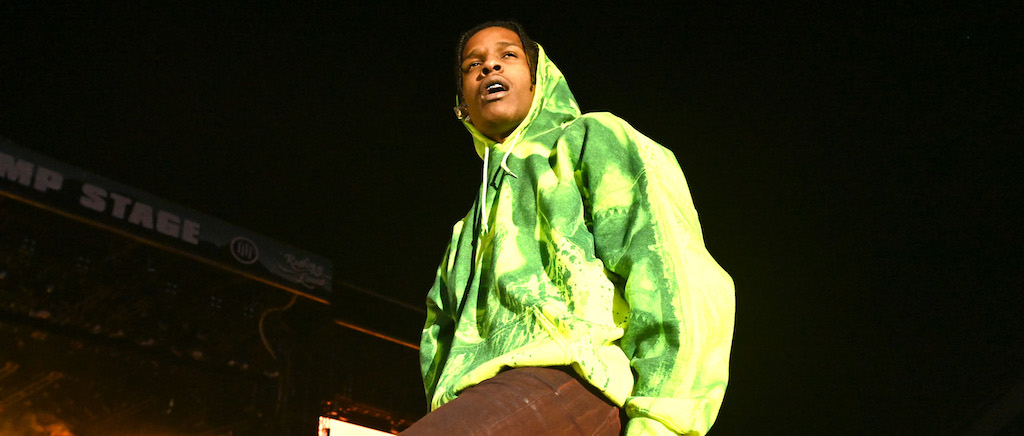
Phase Four of the MCU is finally upon us, comic book fans. Granted, this was already supposed to have happened with Black Widow, but we all know what happened there (no need to rehash). Now the MCU is set to get very weird, very fast with WandaVision, which will send the galaxy-crossed lovers rip-roaring ride through decades before turning into a full-on action affair. Paul Bettany recently confirmed that last detail to Jimmy Kimmel, who expressed disappointment at not seeing a screener before he talked to the Vision actor. In other words, Marvel Studios still fiercely guards secrecy, but that doesn’t mean that we can’t guess what happens. And we can certainly hope for certain developments while the show dances through homages to The Dick Van Dyke Show and the like. Obviously, this approach is nothing like we’ve seen even from the strangest of Doctor Strange vibes. It’s entirely unlike the MCU as we know it, and thank goodness for that because we could use a shake-up after the 23-film long Infinity Saga.
The endgame (pun fully intended here) of this show remains nebulous, but it will begin with Wanda and Vision landing in the town of Westview, where they’ll set about living picture-perfect lives in suburbia. They’ll soon realize that everything isn’t as it seems, and along the way, the duo will be joined by a nosy, overbearing neighbor played by Kathryn Hahn and these players from the MCU: (1) Kat Dennings, reprising the role of scientist Darcy Lewis, who she played in multiple Thor Movies; (2) Randall Park, returning as FBI agent Jimmy Woo from Ant-Man And The Wasp; and (3) Teyonah Parris, who’s new in acting for the MCU but will play the grown version of Captain Marvel‘s Monica Rambeau, who might become Captain Marvel one day.
What else can we expect from WandaVision? A whole lot of unexpectedness, and of course, we’re only a few short days away from the show’s Disney+ premiere, so let’s get down with a wish list.
1. Elevate Wanda To Her Rightful Place: Nothing against Vision here, but it’s actually kind-of amazing how Wanda Maximoff busted into the MCU during Age Of Ultron as more powerful than any existing Avenger, yet her powers were subsequently downplayed. There were still little hints here and there, but Wanda’s badassery was largely forgotten until she vengefully faced off against Thanos during the Avengers: Endgame final battle. Kevin Feige recently confirmed to the New York Film Academy that the moment does matter (a lot) in his mind. “I think it’s interesting, if you look at Endgame, Wanda Maximoff was going to kill Thanos,” Feige pointed out. “That’s as scared as I’ve ever seen Thanos, and if he hadn’t said, ‘Decimate my entire team to get her off of me,’ I think she would have done it.”
So, I’m looking forward to Wanda getting her due in this Disney+ show, even if it takes awhile. WandaVision‘s nine-episode run will immediately be followed by The Falcon and the Winter Soldier, but more than likely, these shows will not resemble each other much, in structure or in theme. The same goes for having much to do with Black Widow, since that movie takes place in between Captain America: Civil War and Avengers: Infinity War. It does seem likely, however, that the events of WandaVision might set up a few upcoming MCU movies, including Doctor Strange in the Multiverse of Madness (and probably the next Spider-Man movie, since Strange will be a Tony Stark-esque mentor to Peter Parker), and I mention Strange specifically because Elizabeth Olsen will be reprising her Wanda-game for that movie. I’m hoping that Wanda goes full-fledged Scarlet Witch and is finally hailed as the most super of MCU superheroes.
2. Definitively Answer The “Is-He-Or-Isn’t-He Alive?” Question: This one might be a no-brainer to answer, but yeah, I’d like to know how the heck they’re going to explain Vision being in this show after he died in Endgame. It feels like time-travel will figure into the explanation, since that’s obviously on the MCU table after the Ant-Man movies and Endgame, and WandaVision will jump through decades, at least, in the TV-homage sense. Is there something deeper going on, though?
It’s entirely possible that Vision’s presence might actually be down to a distraught Wanda losing touch with reality and toting him back in time as a figment of her traumatized imagination. If that’s the case, Vision might not actually exist in WandaVision at all, right? And of course, I’m entirely speculating here, as well as gathering “evidence” from the fact that Paul Bettany is not listed in the cast for Doctor Strange in the Multiverse of Madness. Of course, that could be a ruse by Marvel Studios, who delights in f*cking with fans for the greater good: to avoid spoiling. I mean, c’mon, they flat out-erased Lebowski Thor from trailer footage like the total pros that they are. In other words, there’s no damn telling whether Vision is actually alive in this show or not, but I want an answer, please.
3. Tell Us What’s Really Going On With Those Babies:
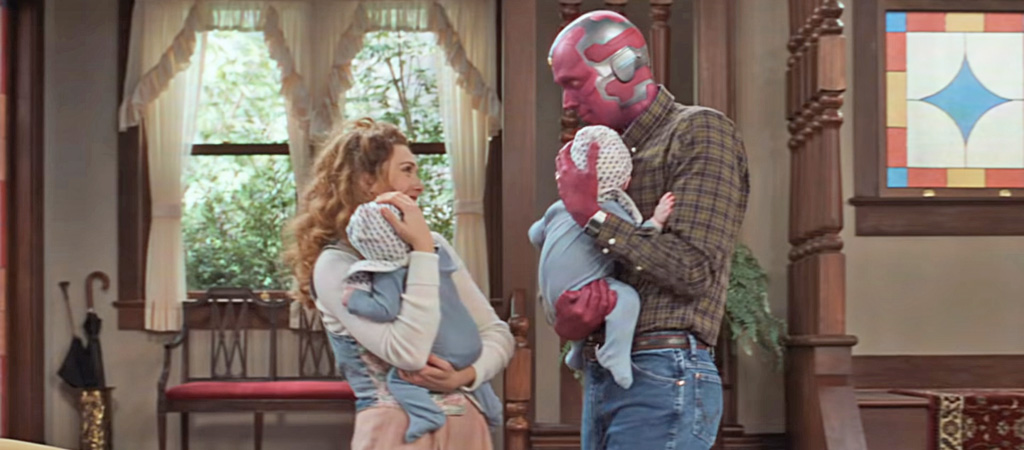
Those baby twins that conspicuously appear in one of the show’s trailers probably aren’t simply a symptom of domestic bliss, regardless of whatever we find out (and it might be nothing) about Vision’s anatomy. Rather, the babies suggest that the series will dive into the comic book lore that sees Wanda descend into madness. This could prove tragic, since the comics detail Wanda’s fractured mental state that follows her pregnancy. Long story short, she essentially conjured these babies into existence, and what happens later causes her to go mad. It’s tragic, and dark, and it remains to be seen whether Disney+ will get as bleak as the comics do with those twins.
I do, however, suspect that what happens with Wanda and Vision in this show, no matter if Vision exists or survives or whatever in this series, will guide the MCU into a tonal shift. This will help set things up for viewers to question reality in the MCU and begin adjusting to all the wild possibilities that the Multiverse will bring next time Doctor Strange shows up. In other words, there’s no possible way to guess exactly where WandaVision will take viewers by season’s end. We could even get a little crossover action with X-Men, given that mutant vibes entered an early trailer, and Wanda is Magneto’s daughter in the comics. Again, the possibilities here are endless, and damn, it’s good to see some Marvel superheroes back in action again, right? Let’s settle in and get ready for what’s being forecast as the wildest ride so far in the Marvel Cinematic Universe.
Disney+’s ‘WandaVision’ will premiere on January 15.

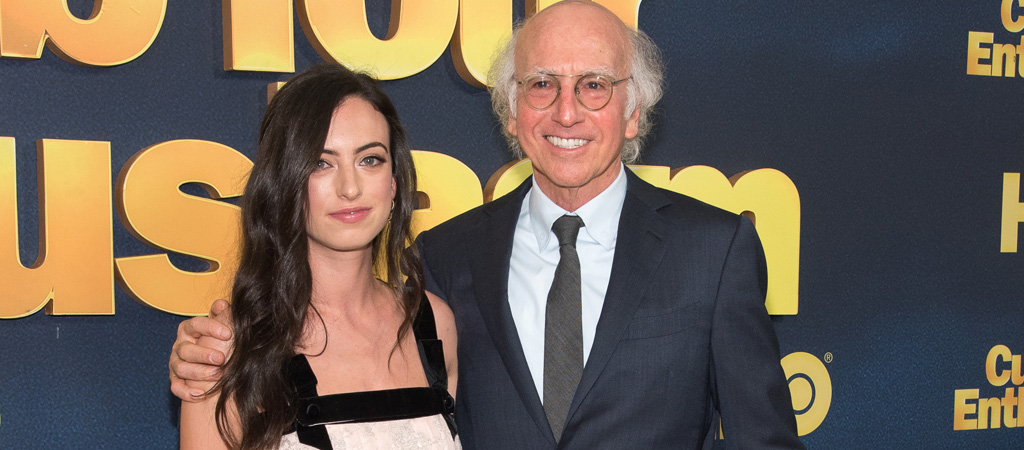

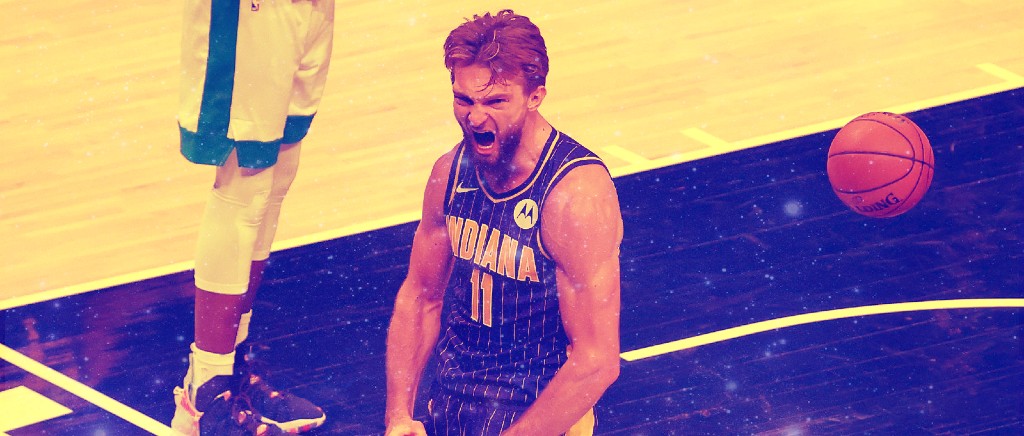
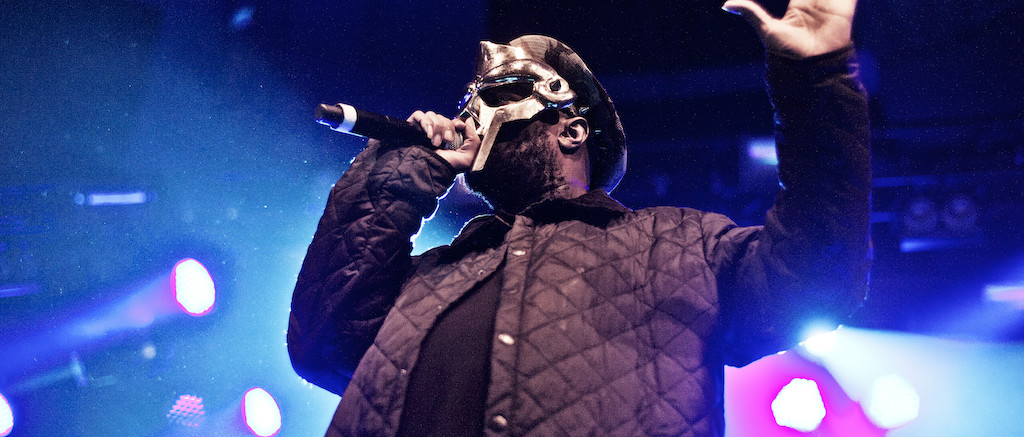
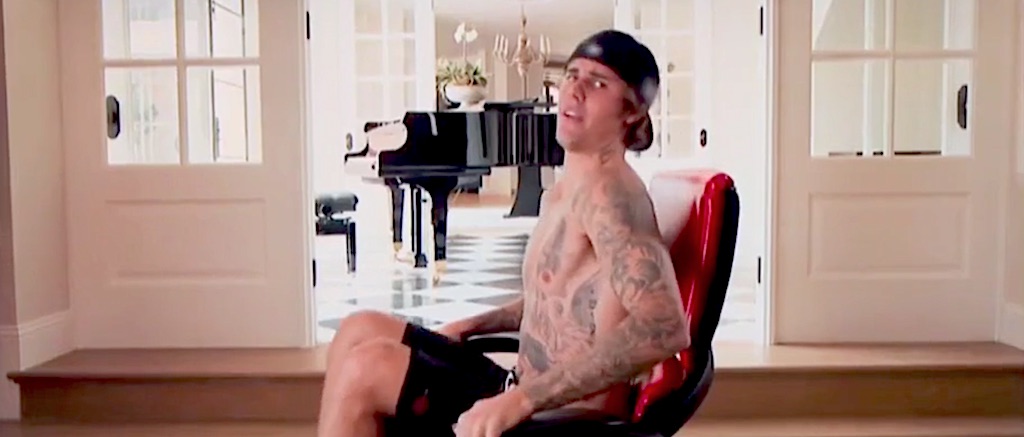
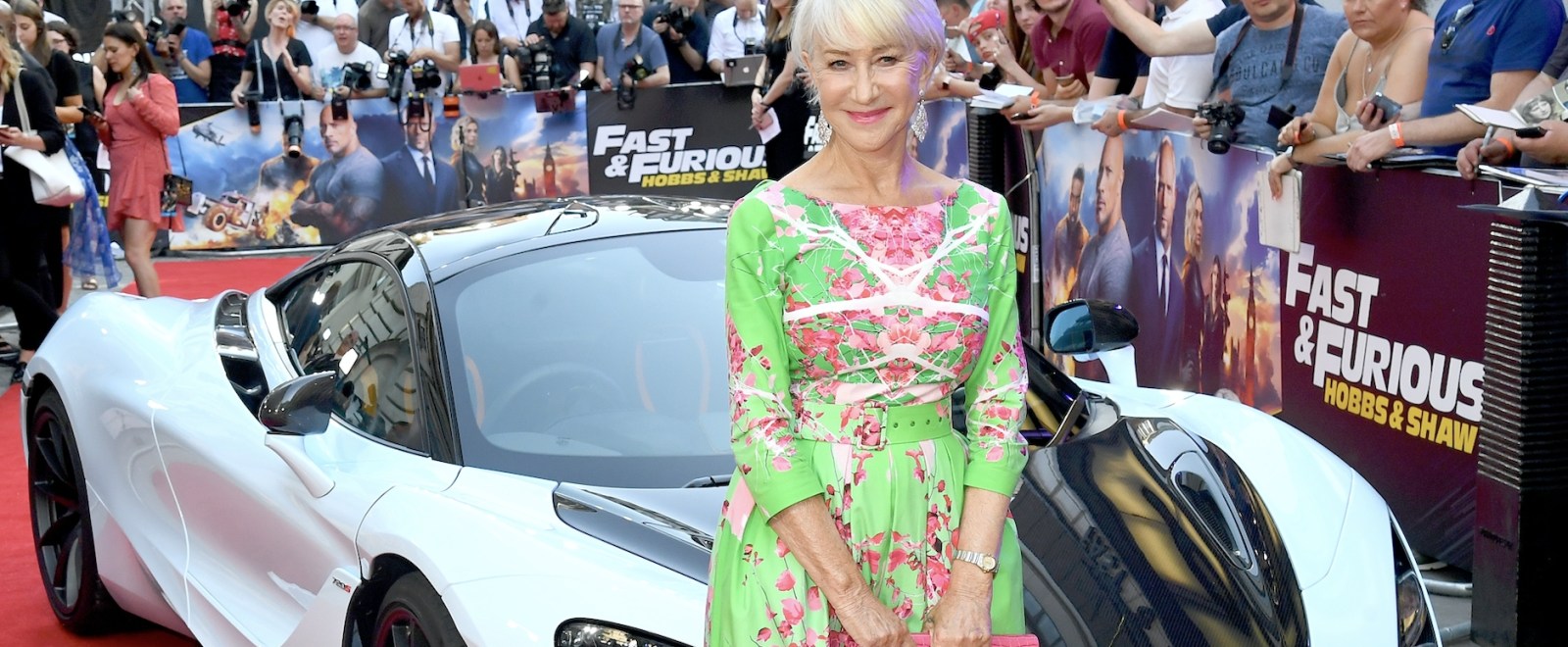
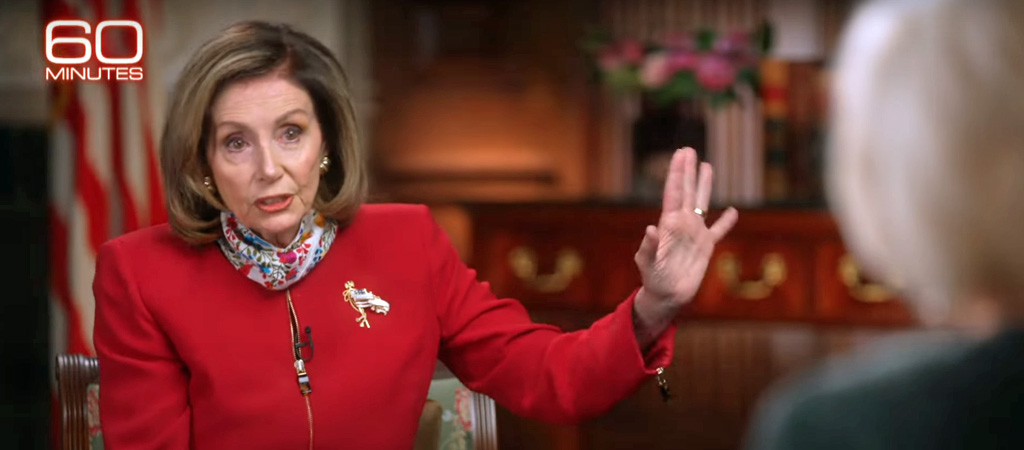
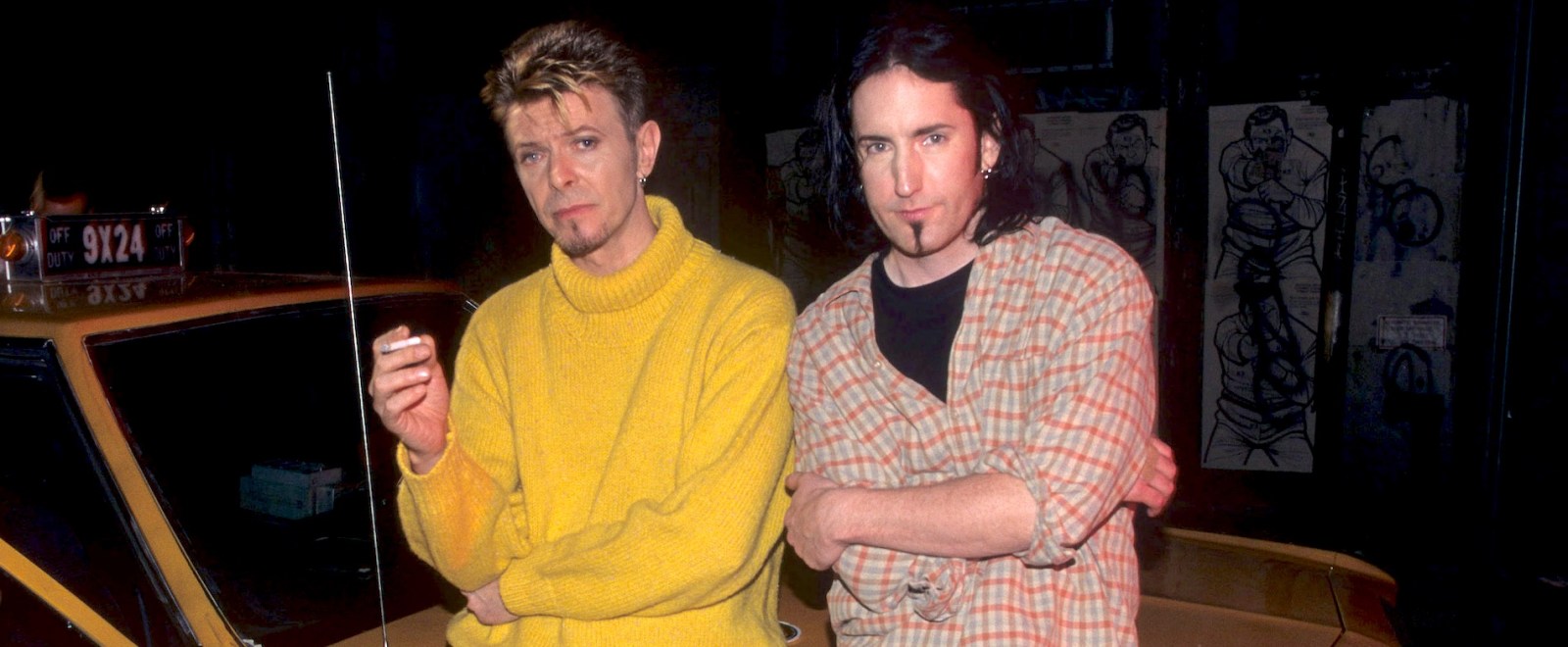

 Marvel Studios’
Marvel Studios’ 